Colombian far-left President Gustavo Petro repealed a decree over the weekend that criminalized the carrying and consumption of “personal doses” of narcotics in the country, allowing citizens to possess up to one gram of cocaine without legal repercussions.
The now-repealed decree, known as “Decree 1844,” was signed in 2018 during the administration of former President Iván Duque, Petro’s predecessor. It allowed the Colombian National Police to combat micro-trafficking of narcotics in public spaces by prohibiting the possession of “personal doses,” allowing the seizure of the narcotics, and imposing fines and/or imprisonment on violators.
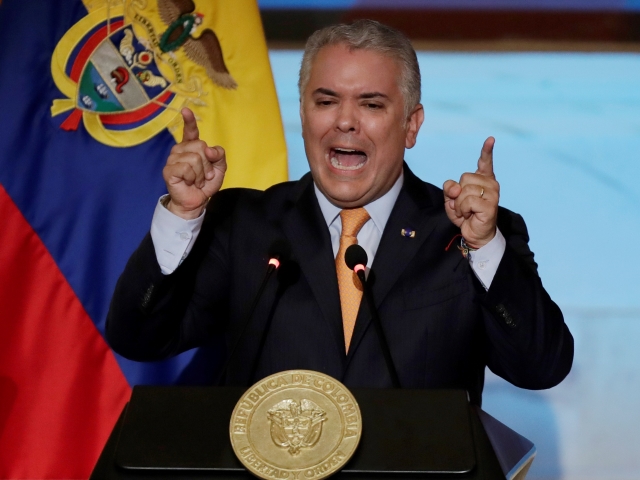
Colombia’s former President Ivan Duque delivers a speech during the inauguration of the congressional session in Bogota, Colombia, Wednesday, July 20, 2022 (AP Photo/Ivan Valencia).
Petro’s government claimed that the repeal was necessary to “adjust” regulations to make them compatible with court decisions that allow for the consumption of “personal doses” of drugs such as cocaine.
According to Colombia’s 1986 National Narcotics Statute Law, a “personal dose” is defined as an “amount of marijuana that does not exceed twenty grams; of marijuana hashish that does not exceed five grams; of cocaine or any cocaine-based substance that does not exceed one gram; and of methaqualone that does not exceed two grams.”
Petro, a former member of the Marxist M19 guerilla, became Colombia’s first-ever leftist president in 2022. Under his presidency, the Colombian government has embraced drug use through a socialist program Petro named “total peace.” Petro has repeatedly insisted that hydrocarbons and sugar are “more poisonous” than cocaine. Members of Petro’s government have made open calls for the drug’s full legalization.
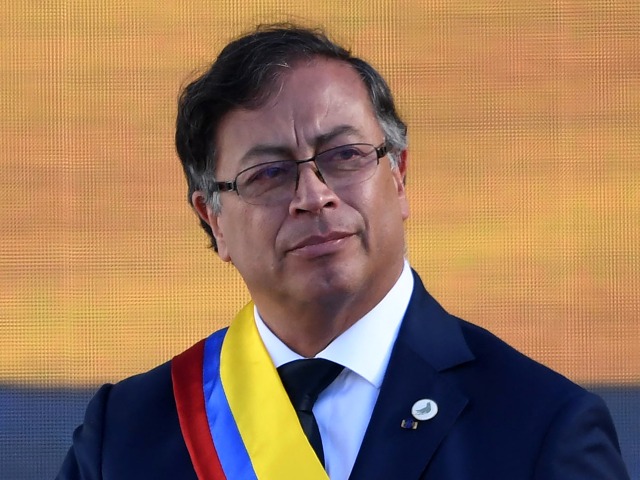
Colombia’s new President Gustavo Petro delivers a speech after swearing in during his inauguration ceremony at Bolivar Square in Bogota, on August 7, 2022 (JUAN BARRETO/AFP via Getty Images).
Colombia is the world’s top producer of cocaine. Citing statistics from the U.N. Office of Drugs and Crime (UNODC), Bloomberg predicted in September that cocaine was set to soon take over oil as Colombia’s top export, potentially as recently as by the end of 2023. Under Petro, Colombia is producing cocaine at the highest levels in more than two decades.
Petro’s son, Nicolás Petro Burgos, is currently on trial on charges of illicit enrichment and money laundering. Prosecutors allege that they have evidence of Petro Burgos receiving money from drug traffickers intending to invest in his father’s 2022 presidential campaign.
Petro defended the decree’s repeal by stating on Saturday that “if the constitution allows for personal doses, police activity should not be focused on pursuing drug users, but rather on pursuing the big drug lords and on taking action against crimes that affect citizens.”
Duque, who signed the 2018 decree, told the Colombian magazine Semana on Sunday that the repeal is an “absolutely absurd” and “clumsy” measure, dismissing arguments that the measure aligns the law with the Constitutional Court’s rulings.
Duque explained that what the 2018 decree sought was the protection of children and teenagers and to guarantee their safe environments “in such a way that we could give tools to the Police to be able to seize drugs that were in the streets, in parks and also in those places where there is a permanent mobilization of minors.”
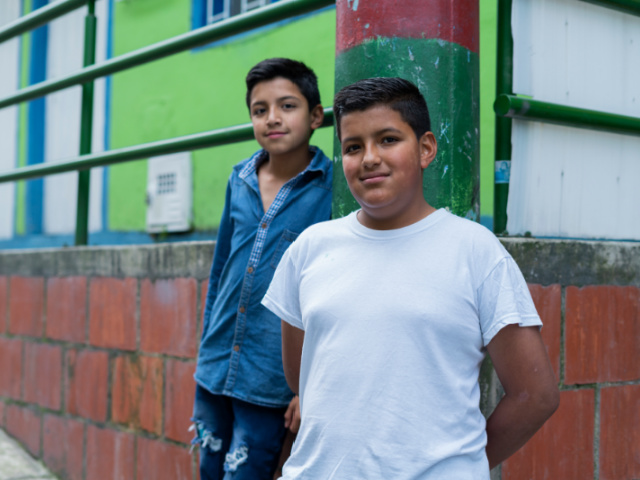
Latin brothers with an average age of 9 to 11 years dressed comfortably are on the street of the neighborhood where they live looking towards the camera that portrays them showing a beautiful smile.
“The consumption of minimum doses of certain hallucinogens is protected under Constitutional Court decisions, but not the carrying and commercialization in public spaces and in safe family environments,” Duque explained.
“With the decision taken by the Government, the only thing that is being guaranteed at this moment is that the jíbaros [slang term for drug dealers] are going to do their business,” he predicted, “because they will have full freedom to transport narcotics in the streets in order to flood the parks and the environments of minors with drugs.”
Colombian Attorney General Francisco Barbosa blasted the far-left president in remarks given to Semana on Sunday. Barbosa harshly rejected Petro’s decision, asserting that it jeopardizes the safety of children and teenagers in public spaces.
“The Petro Government, once again, extends its hand to drug trafficking in Colombia and humiliates thousands of families by canceling police measures to prevent drug possession,” Barbosa condemned. “Children and adolescents are left unprotected in their environments, including schools and parks.”
Barbosa asserted that, while it is “clear that in Colombia the consumption of the personal dose is protected and this has been established by the Constitutional Court,” the repeal “ends” drug prevention in safe public environments such as parks and, “therefore, children and their families are attacked.”
“This causes pain and indignation. The State is there to protect minors. This government has been characterized by defending the criminals and not the victims,” Barbosa said.
The Colombian Attorney General asserted that from now on, due to the Petro decision, “there can be [the] carrying and commercialization of drugs in any corner of Colombia, such as marijuana, bazuco, cocaine and even fentanyl.”
Conservative former President Álvaro Uribe Vélez heavily criticized Petro’s measure on Saturday, asserting that the decree’s repeal is a step towards the normalization of the dysfunctional family.
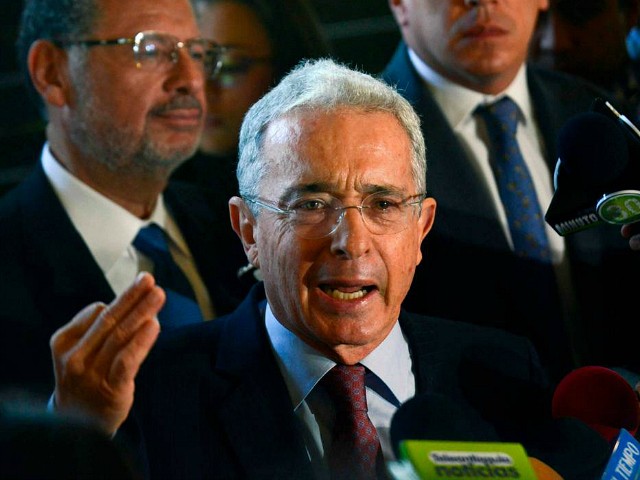
Former Colombian president (2002-2010) and Senator Alvaro Uribe Velez (C) answers questions during a press conference (JOAQUIN SARMIENTO/AFP/Getty Images).
“The legalization of recreational consumption and the elimination of police controls is a step to make pervasive the dysfunctional family, to destroy it [the family], to lead the youth to anxiety and annihilation,” Uribe Vélez wrote on Twitter. “This contributes to the destruction of the Nation, even if at first it is not noticed. It is the ascending path to fentanyl and death.”
“Then we will have mom and dad ‘drugged up’ on weekends and children, adolescents and young people to the fate of the street,” he continued.
Petro responded to Uribe’s statements by claiming that he sees “no reason why repealing Duque’s unconstitutional fines would make the family dysfunctional.”
“On the contrary, the open wound between the neighborhood youth and the local police can be closed by stopping the state’s senseless persecution of young people suspected of being consumers just because they are young; most of them are not consumers,” Petro wrote on Twitter.
“With the repeal of the decree, the fines and the racketeering that it entails, the taking to the [Colombian Police’s Immediate Attention Command] and in many cases the beating, the extortion and even the abuse of women cease,” Petro claimed.” We can speak of Peace in the neighborhood.”
Petro continued his message by clarifying, “All the norms of criminalization of the commercialization of drugs and drug trafficking are still in force.”
“During the governments of Uribe and Duque, the neighborhood youth was held up as the internal enemy, which led to the execution of thousands of young people,” Petro claimed. “That war against the youth is over. The police must succeed in putting an end to neighborhood distrust of the youth and focus on what the law forbids.”
Petro continued rambling in a third message.
“The prohibition of consumption in public places must be established by each municipality,” he added.
The Colombian Conservative Party announced on Sunday that it will present a bill to the nation’s Congress to restore the executive action repealed by Petro, arguing that it is necessary to aid the fight against micro-trafficking of narcotics and citizen security.
Christian K. Caruzo is a Venezuelan writer and documents life under socialism. You can follow him on Twitter here.
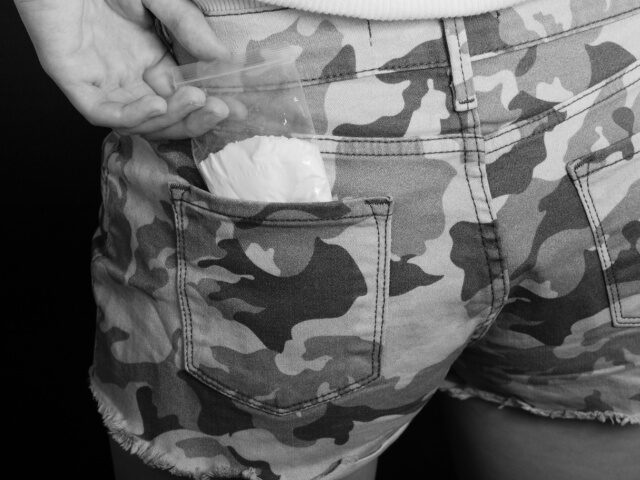
COMMENTS
Please let us know if you're having issues with commenting.